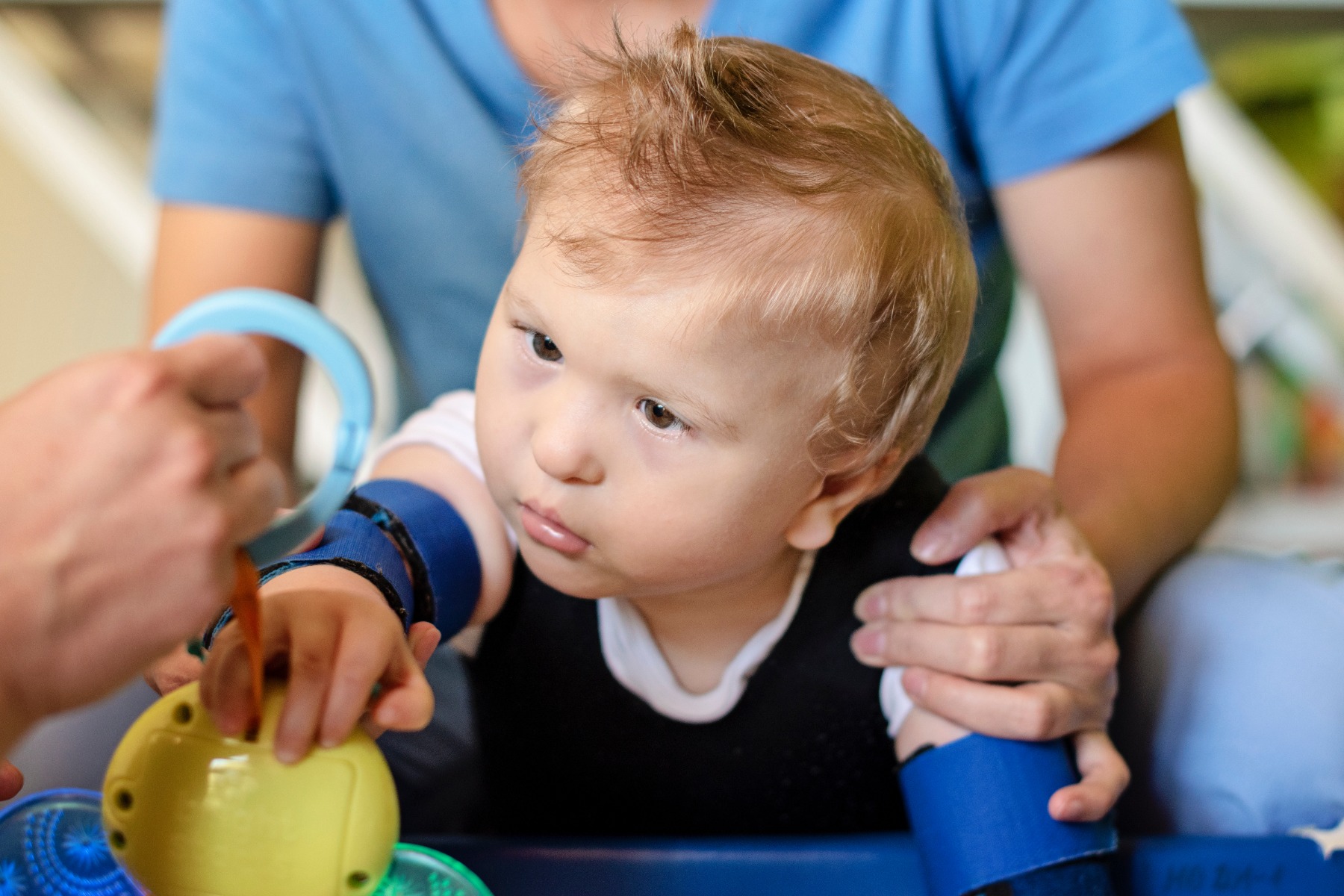Cookies and Privacy
Daytot processes information about your visit using cookies to improve site performance, facilitate social media sharing and offer advertising tailored to your interested.
By continuing to browse our site, you agree to the use of these cookies. For more information see our
Privacy & Cookie Policy.
3 Ways to Foster Early Development If Your Child is a Cerebral Palsy Warrior

For the sake of this article there are a few terms to clarify: “early development” means motor skill development in the infant stages and skills like tummy time, rolling and sitting. “Providers” are anyone on the team (feeding therapists, physical therapists, occupational therapists, speech language pathologists, neurologists, physicians etc).
March is Cerebral Palsy awareness month and it’s such a great time to celebrate all of the ways children with cerebral palsy contribute to our communities!
Let’s look at a few ways that we can support children with cerebral palsy from an early age - to foster their development and general participation in their family and community.
Cerebral palsy is a condition that affects the developing brain and specifically its creation of movement, muscle tone and posture. People can have difficulty moving in a purposeful, coordinated way and it can be classified as mild, moderate or severe.
But in reality, your child isn’t captured in a definition or a classification - they are their own person, with their own needs and when it comes to a diagnosis like cerebral palsy it can be overwhelming initially. A key is taking in small bits of digestible information from a source you trust and processing some of the real emotion that comes along with the tidal wave of receiving a diagnosis. Build your team so you can build your support system - and know that earlier is always better, even if the team changes over time.
-
Caregiver Support Is a Need Not A Luxury: often promoting development early on in children with a diagnosis of cerebral palsy isn’t a magic exercise or toy. It’s maximizing opportunity cost or the ability for a child to have many attempts at a skill like tummy time, head control or rolling practice. And the best way to do that is to support the parent so the child can have access:
-
Take turns with caregivers who are involved in therapy visits. Mom’s often bear the brunt of therapy management and having another caregiver involved - dad, grandparent, auntie, nurse - can be incredibly helpful.
-
Every Child with Cerebral Palsy Is Different: A child with “mild” cerebral palsy can have very different, still challenging, motor skills when compared to a child with “severe” cerebral palsy. And two children with “mild” cerebral palsy can look very different from each other. And that is ok - focus on their strengths and areas for improvement or practice. Movement is variable but children with cerebral palsy benefit more from early intervention to build the pathways from their brain to their muscles - they are more at risk if not challenged consistently and in a caring way.
-
Essential Motor Skills Are Still Important - they just look different: head control, sitting control, and playing on their belly. All of these are vital skills even if we are working on them as they grow and get older. Early understanding and practice of these skills often are so helpful.
-
Small Movements Can Make A Big Impact: babies reaching and coordinating movements early can make a big impact on development. Simply laying on their side babies have to take in new information which uses all of their senses. For babies with cerebral palsy or at risk of delayed developmental what may seem simple to us is eye-opening or challenging for them. This can be key to making a big difference early on and building small but functional skills.
These are not a “one size fits all” prescription but they can support parents or caregivers that support a child with cerebral palsy. The key takeaway is to offer many opportunities for your child to explore a skill; they often will surprise you when given a chance or motivated in a new way. Our children are resilient and you as a parent are doing such an amazing job searching for ways to give them access to movement!
Blogger Profile
Kelsey is a doctor of physical therapy who works with mama’s and their babies in their homes. She uses a coaching style to empower mama to support her babies motor development without stress or guilt. And focuses on mama’s pelvic health during pregnancy and the postpartum journey - with less leakage and pain. Kelsey is a working mama of two under 5 so she understands the transition back to the office and the exhaustion of pumping, feeding and the desire to still nurture your dreams and ambitions. She looks forward to helping you and your little one explore and stay mobile during whatever adventures you seek. You can connect with Kelsey on Instagram @the.mobility.project
